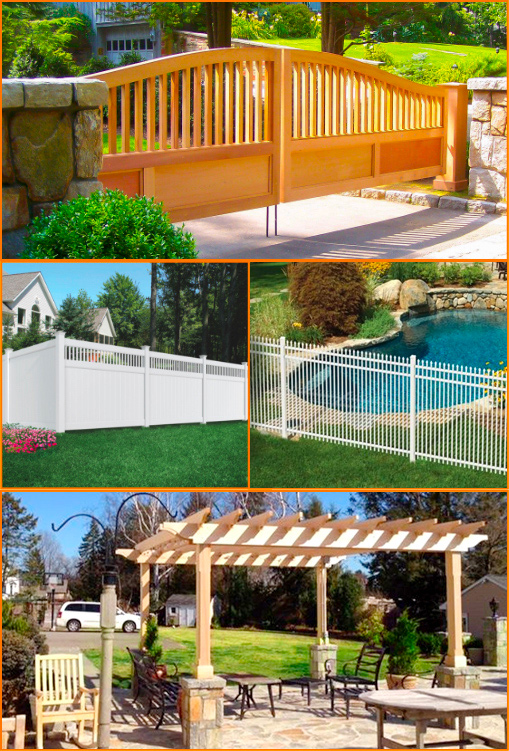Winter is just around the corner and many of us prefer staying warm inside to going outside, but on the warmer days, get outside and check on your fence! We break down the things you should know about winter fencing.
Winter Fencing 101
Winter weather can wreak havoc on a fence. In fact, as the temperatures start to turn and excess moisture resides in the air, the fall and winter are a terrible time for fences. As a result, winter fencing is all about preparation for the coming weather challenges. For example, the following winter weather conditions negatively impact a fence.
- Inclement weather like rain and snow. In particular, these wet conditions never allow the fence to dry out due to the general lack of sunlight and warmth. As a result, the moisture likely leads to mold, mildew and rot.
- Changing temperatures causes fences to expand and contract. In particular, the constantly changing temperatures likely cause the wood and knots in the wood boards to expand or contract at different rates. Over time, this may cause a knot to fall out, which leads to rot and possibly pest infestation.
- Saturated soil may cause sinkholes. In particular, with the rain and snow in the season, it may lead to suturing the soil, which could create sinkholes, landslides or shifts in the soil that possibly impacts the fence posts.
- Heavy loads of debris caused by snow or ice storms. In particular, while we usually think of damage to homes and roofs, snow or ice storms can cause tree branches to fall. If they land on your fence, it may not be able to support the weight and cause some damage.
Another part of winter fencing that arises during the winter is installation.
Yes, you can install a fence in the winter! However, this task is weather dependent. For example, if your fence requires concrete, then experts note it should be poured between 40 and 60 degrees. Additionally, as you’ll need to dig a lot of holes, it is advisable to install any fence in the winter prior to the ground freezing. While professionals can use special tools, installing a fence in the winter is only advisable prior to the ground freezing.
Winter Fencing Tips to Protect Your Fence
Fortunately, with a little foresight and simple proactive steps, winter weather conditions do not need to damage your fence. While some things are out of your control, like a snowstorm that might knock over a tree, winter fence maintenance is all about monitoring. For example, look at your fence before and after storms to remove debris (such as leaves and branches) from the posts. This simple step helps reduce the risk of them piling up and keeps the spaces between the boards clear, which allows proper airflow.
Additionally, before the snow starts to pile up it is always a good idea to stain your wooden fence or apply a fresh coat. Adding a waterproof stain to your wooden fence helps protect it against rain, snow, and sleet. Plus, this waterproof stains helps keep out moisture, which reduces the risk of rot, mold and mildew and improves your wooden fence’s life expectancy.
Another proactive approach to reduce the risk of snow and ice storm debris is yard management. As the first snowfall approaches, it is a good idea to cut any tree limbs that are hanging over your fence. These tree limbs can get weighed down by the snow, causing them to snap, fall, and damage your fence.
After checking above your fence, check below for any leftover leaves that may have piled up. Again, leaf piles against wooden and vinyl fencing create extra moisture, which can lead to post-warping. As an added bonus, unwanted visitors may use leaf piles as a warm winter home too, so removing them helps reduce your risk of lawn damage as well!
Finally, as the winter season progresses and the snow starts to pile up, clear some of the snowdrifts away from your fence, which will allow your fence to dry once the snow starts to melt. One last step that protects your fence and lawn is adding reflectors to your fence to alert snowplows not to get too close.
When spring approaches and the winter season comes to an end, your fence may need a good cleaning. Check back here for tips on how to best clean your wood and vinyl fencing!

